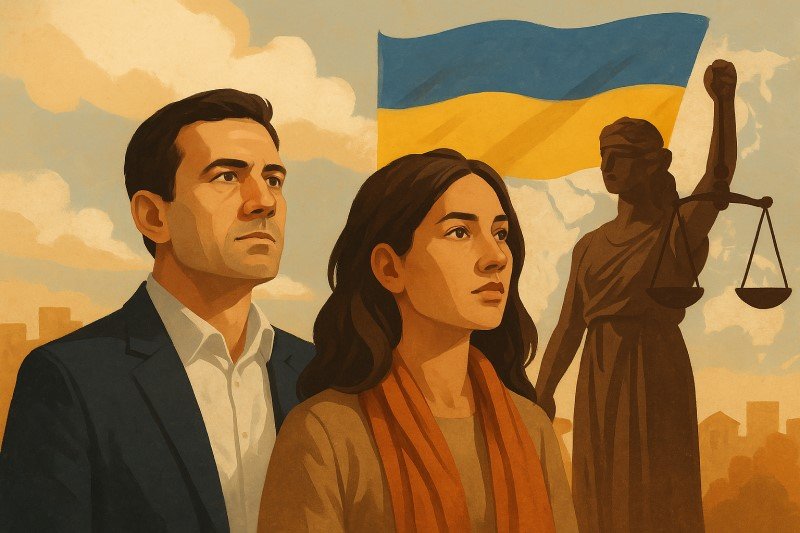Understanding the Human Side of Legal Systems
Migration is more than just a movement across borders—it is a personal transformation, a legal journey, and often a long-term commitment to a new society. As the world faces political upheavals, labor shortages, humanitarian crises, and shifting geopolitical realities, immigration continues to be one of the most significant forces shaping modern societies. While economic statistics and policy headlines often dominate the narrative, the true essence of immigration lies in the process of legal and social integration.
At the heart of that process are individuals seeking not just safety or opportunity, but also identity and belonging. These are not abstract goals—they require legal structures to support them. From work permits to permanent residency and eventually naturalization, every stage of immigration is guided by a country’s laws. This is where immigration law services play an invisible but vital role in transforming personal stories into lasting contributions to national communities.
Ukraine, for example, has become a symbolic frontier in recent years—not only for defense and sovereignty but also for redefining what it means to be part of a nation. As thousands of foreign nationals have arrived in the country, either to support humanitarian efforts, join international organizations, or even volunteer for defense forces, the legal framework surrounding their presence has taken on new importance. Policies are being shaped in real-time to reflect these contributions, with one striking development being the push toward Ukrainian citizenship for foreign volunteers—a legal recognition of their commitment and sacrifice.
The Evolution of Immigration as a National Conversation
Every country has its own approach to immigration, influenced by its history, values, and current social needs. In times of crisis, those laws often evolve rapidly to meet emerging challenges. What doesn’t always evolve as quickly, however, is the public conversation about what integration truly means. Legal residency might grant someone the right to work or live in a new country, but full integration involves access to rights, participation in civic life, and a sense of shared identity.
For legal systems, this creates a dual responsibility. On one hand, immigration law must enforce clear rules to regulate entry and status. On the other, it must also adapt to new realities and offer pathways for people who demonstrate long-term commitment or exceptional contributions to society. The growing number of naturalization cases, humanitarian protections, and specialized visa programs are signs that governments increasingly recognize the human dimension of migration.
Ukraine’s current legal environment offers a clear example of this balance. While traditionally structured to manage labor migration, student visas, and family reunification, the country’s immigration policies are now being reshaped by the influx of volunteers and expatriates contributing to national rebuilding. Legal adjustments are being proposed to accommodate new types of foreign residents, including accelerated pathways to permanent residence and eventual citizenship. These developments are not just technical—they reflect deeper societal values about inclusion and recognition.
The Legal Foundation of Belonging
For immigrants, achieving legal status is a foundational step toward building a stable future. It provides access to healthcare, employment, housing, education, and financial services. But beyond these practical benefits lies a more profound need: the feeling of legal security. Knowing that your stay in a country is protected by law—that you have rights, and that those rights are enforceable—can dramatically influence one’s willingness to invest in a new life, learn the language, and participate in community life.
This is where professional immigration law services come into play. They offer more than just technical assistance with paperwork. They provide guidance, interpretation, and advocacy in a system that can be confusing and often overwhelming. Especially for individuals coming from different legal cultures, having a knowledgeable legal advisor can be the difference between successful integration and prolonged uncertainty.
As societies face labor shortages, demographic shifts, and the need for reconstruction and development, integrating foreign residents will become an even more strategic priority. Legal frameworks will need to keep up, not only by streamlining residency and citizenship pathways but by creating systems that reflect fairness, efficiency, and humanity.
The recent legal developments around Ukrainian citizenship for foreign volunteers underscore how countries can evolve their laws to meet unique circumstances. These changes are not just about offering passports; they are about recognizing loyalty, solidarity, and the shared effort of rebuilding a country under duress. They mark a powerful example of how legal structures can respond not just to administrative needs, but to moral ones as well.
Looking Ahead: The Law as a Bridge, Not a Barrier
As global migration continues to redefine modern borders and societies, immigration law must do more than regulate movement—it must build bridges. The legal profession has a crucial role to play in ensuring that people are not lost in bureaucratic limbo but instead find a clear, just path toward inclusion.
For individuals dreaming of a better life or contributing to a cause larger than themselves, having access to competent immigration law services ensures that their efforts are respected and their futures protected. Whether it’s a student, a business investor, or a foreign volunteer who has stood side by side with Ukrainians in a time of great need, the law should not be a gatekeeper but a gateway.
In this new global era, where migration is both a challenge and a necessity, the countries that thrive will be those that understand how to balance regulation with recognition—where the law upholds the values of fairness, gratitude, and the belief that anyone, given the right legal pathway, can become a meaningful part of a nation’s story.


